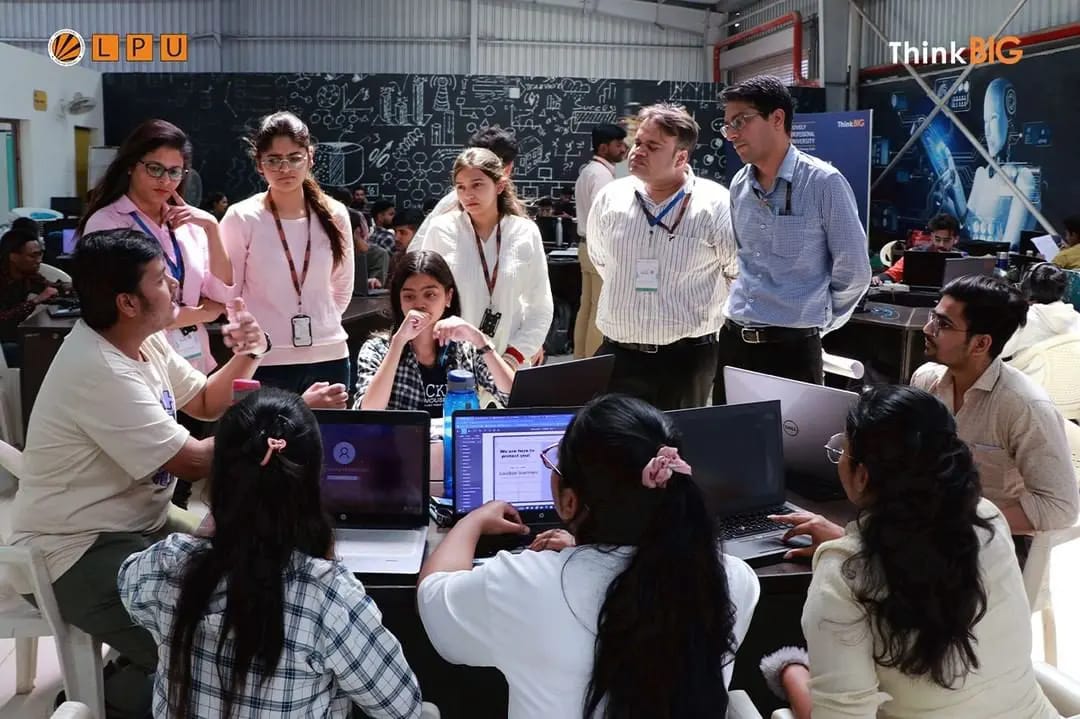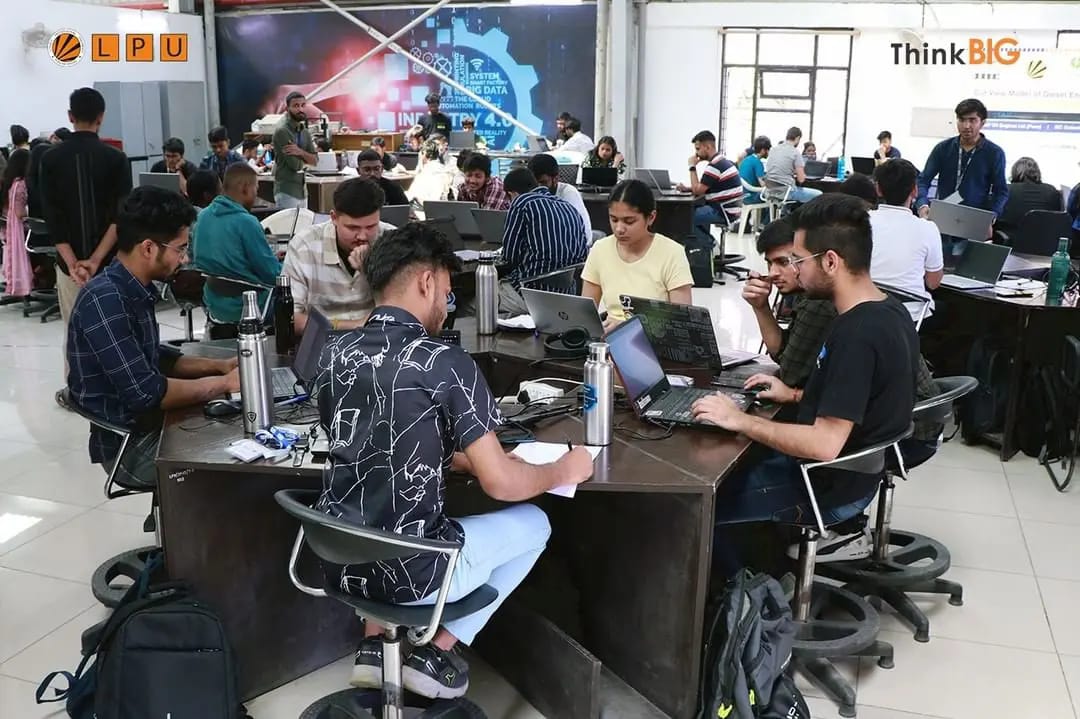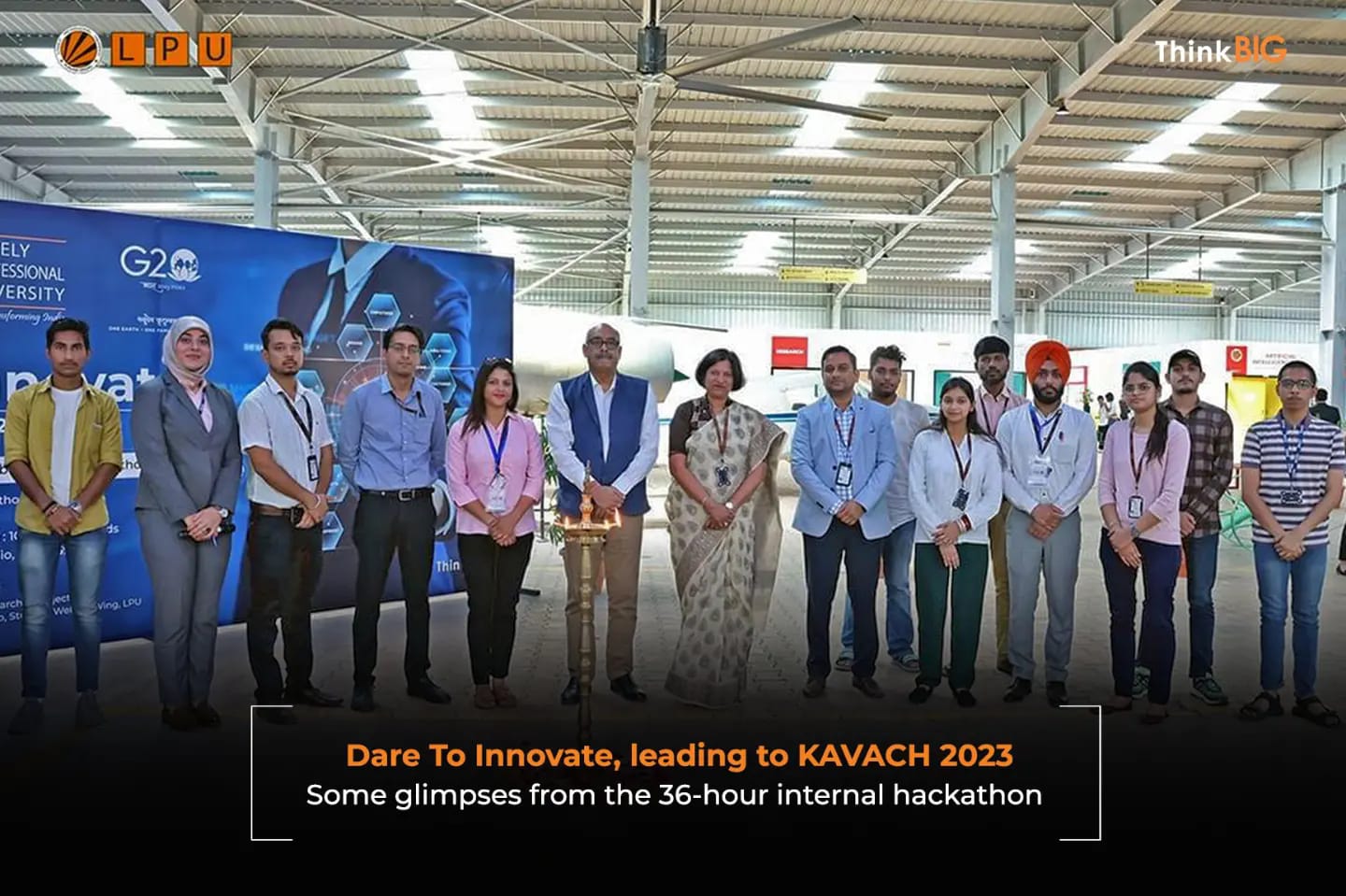Lovely Professional University recently conducted a 36-hour internal hackathon, “Dare to Innovate,” which served as a precursor to KAVACH 2023. The hackathon was initiated by the Ministry of Education’s Innovation Cell in collaboration with the Bureau of Police Research and Development and the Indian Cybercrime Coordination Centre. The hackathon aimed to encourage students to develop innovative solutions to tackle the challenges faced by law enforcement agencies in combating cybercrime. The participants were given a choice of problem statements to work on, ranging from preventing cyberbullying to detecting and preventing online fraud.

The hackathon kicked off with an inaugural ceremony, where the chief guests and industry experts shared their insights on the importance of innovation in combating cybercrime. The participants were then given a brief on the rules and regulations of the hackathon and the criteria for evaluation. The teams were provided with a workspace equipped with all the necessary tools and resources to develop their solutions. Mentors and industry experts were also present to guide the students and provide technical support.
The participants worked tirelessly for 36 hours, fueled by a spirit of competition and the desire to create something meaningful. The atmosphere was electric, with teams brainstorming, coding, and testing their solutions. At the end of the 36 hours, the teams presented their solutions to a panel of judges, who evaluated them based on innovation, functionality, usability, and impact. The solutions ranged from mobile applications and web platforms to artificial intelligence-powered solutions. The winning teams were awarded cash prizes, certificates, and the opportunity to present their solutions to law enforcement agencies and industry leaders. However, the hackathon was not just about winning; it was about learning, collaborating, and pushing boundaries.

The 36-hour internal hackathon at LPU was a great success, and it achieved its objective of inspiring students to innovate and develop solutions to combat cybercrime. It also highlighted the importance of collaboration between academia, law enforcement agencies, and industry to tackle the challenges posed by cybercrime. The Ministry of Education’s Innovation Cell, along with the Bureau of Police Research and Development and the Indian Cybercrime Coordination Centre, must be commended for their efforts in promoting innovation and entrepreneurship among students and for creating a culture of innovation in the country.
The “Dare to Innovate” hackathon was an opportunity for potential young minds. It was a great platform for students to showcase their talents and ideas and work towards making the digital world safer and more secure.

















